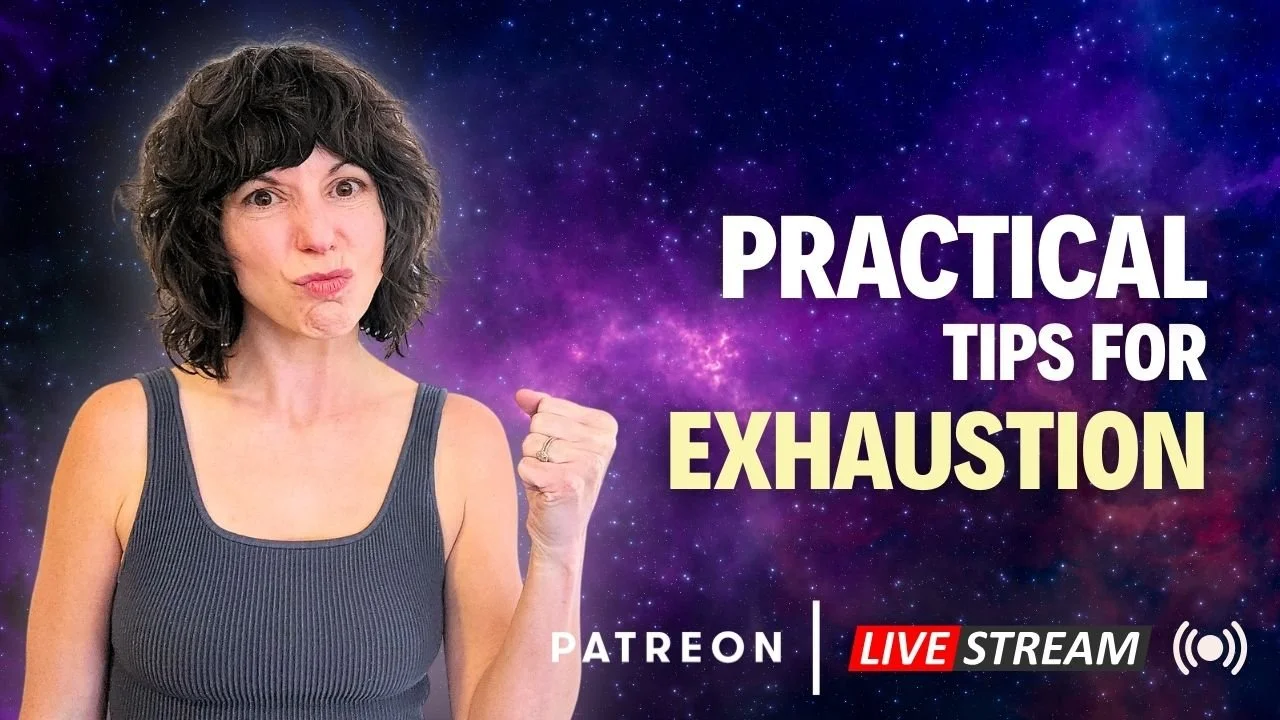Using Heart-Centered Living to Overcome Stress and Trauma
Today, let's explore the concept of "heart-centered" living – a term that is often used, but what does it really mean? More importantly, how do we embody it, understand it, and leverage it in our healing journey, particularly if we're highly sensitive individuals?
As someone with a significant trauma history, I know all too well how stress and tension can disconnect us from our bodies. The idea of feeling disembodied might sound alien if you've never experienced it, but if you've lived through a tumultuous childhood, this might resonate. This disembodiment, disassociation, or feeling of disconnect from your body, often stems from the tension levels experienced during those formative years. I believe that the key to healing lies in safely returning to the body from which we disconnected due to fear and stress.
Take, for instance, my personal journey. I struggled for years to simply command my body to breathe. If you've ever felt unable to make your body comply with your mind's intentions, you might be experiencing a level of disembodiment or disassociation. I remember marveling at gymnasts and dancers, unable to fathom their level of bodily control - a feat that seemed unreachable due to my own post-traumatic stress.
However, even if you identify with this, remember to cultivate patience. Healing and self-development are slow processes, and your nervous system especially learns at a more gradual pace. Keep working on your relationship with your body, create safety, and with time, it's not only possible, but likely that you will return to a state of peaceful embodiment – our birthright.
The journey of healing ultimately leads us to a more heart-centered life. Even if you've never used the term 'heart-centered,' deep self-development naturally brings us to this perspective. The side effect of healing is an enriched presence practice, leading to more compassion, patience, ease, and forgiveness for ourselves and others.
As an empath and a clinical psychotherapist, my heart-centered experience intertwines the physical, mental, emotional, and spiritual aspects.
Physically, heart-centeredness means an awareness of my heart, that life force pumping blood through my body. In this state, my mind gets a well-deserved break. As my focus shifts to my heart, I experience an embodied deepening, a weighted, secure sense of sinking into my body – an internal shift akin to a lower, stabilized emotional center of gravity.
Mentally, heart-centeredness translates to a quieter mind. The hustle-bustle of thoughts eases, as my awareness moves from the mind to the heart. The two – mind and heart – communicate in a foreign yet harmonious language, bringing a sense of acceptance, acknowledgment, and fondness.
Emotionally and spiritually, heart-centeredness opens up a space of warmth, safety, and openness. It's like opening a grand doorway to a large house, ready for reciprocity and sharing. This state of vulnerability is my heart's superpower – even in moments of sadness or heaviness, it is a testament to my capacity for love, sharing, and connection. This heart-centered light shines across my life's landscape and the world at large – a beacon of energetic truth defying words and human logic.
Ultimately, being heart-centered means to know that there is always a beacon guiding us back to ourselves and to each other. If you're a seeker, you will inevitably uncover your unique interpretation of heart-centeredness. This exploration will add to the collective understanding of what it means to live a heart-centered life.
If you feel a bit lost or frustrated comparing your feelings to mine, remember, there's no "right" or "wrong" in this journey. Your unique interpretation of heart-centeredness will form, just as I shared my personal perspective with you today. If you were to gather insights from 20 different individuals, you'd likely get 20 distinct descriptions. My intention was to provide a glimpse into my experience to help you recognize similarities or differences in your own journey. As you define what being heart-centered means to you, you'll contribute to the collective understanding and expression of this concept. You may share this understanding with your inner self or with others navigating similar paths. If you find yourself feeling lost, confused, or drawing comparisons and not quite resonating with my experiences, refrain from self-criticism. It's okay if you feel disembodied; acknowledging it is an important step in the process. Continue to learn, evolve, and expand your understanding.
Episode Tags
- ADD 1
- Abuse 17
- Alcohol 3
- Anger 11
- Archetypes 1
- Bullying 6
- Childhood 37
- Codependency 10
- Covid 4
- Crystal Catalina 4
- Depression 15
- Detachment 2
- Disassociation 4
- Emotions 75
- Existentialism 2
- Faith 1
- Family 28
- Fatigue 4
- Focus 3
- Gratitude 11
- Grief 14
- Guilt 2
- Healers 7
- Healing 52
- High Sensation 4
- Hope 1
- Hypervigilance 7
- Introverts 6
- Lonliness 9
- Love 3
- Manifesting 5
- Manipulation 20
- Masculinity 1
- Men 1
- Mindfulness 39
- Money 10
- Music 3
- Nutrition 2
- Overthinking 8
- PTSD 13
- Parenting 12
- People Pleasing 9
- Perfectionism 6
- Pets 4
- Relationships 21
- Resiliency 14
- Sadness 1
- Self Esteem 19
- Self Love 11
- Self Respect 1
Upcoming Events
Episode Tags
- ADD 1
- Abuse 17
- Alcohol 3
- Anger 11
- Archetypes 1
- Bullying 6
- Childhood 37
- Codependency 10
- Covid 4
- Crystal Catalina 4
- Depression 15
- Detachment 2
- Disassociation 4
- Emotions 75
- Existentialism 2
- Faith 1
- Family 28
- Fatigue 4
- Focus 3
- Gratitude 11
- Grief 14
- Guilt 2
- Healers 7
- Healing 52
- High Sensation 4
- Hope 1
- Hypervigilance 7
- Introverts 6
- Lonliness 9
- Love 3
- Manifesting 5
- Manipulation 20
- Masculinity 1
- Men 1
- Mindfulness 39
- Money 10
- Music 3
- Nutrition 2
- Overthinking 8
- PTSD 13
- Parenting 12
- People Pleasing 9
- Perfectionism 6
- Pets 4
- Relationships 21
- Resiliency 14
- Sadness 1
- Self Esteem 19
- Self Love 11
- Self Respect 1




















